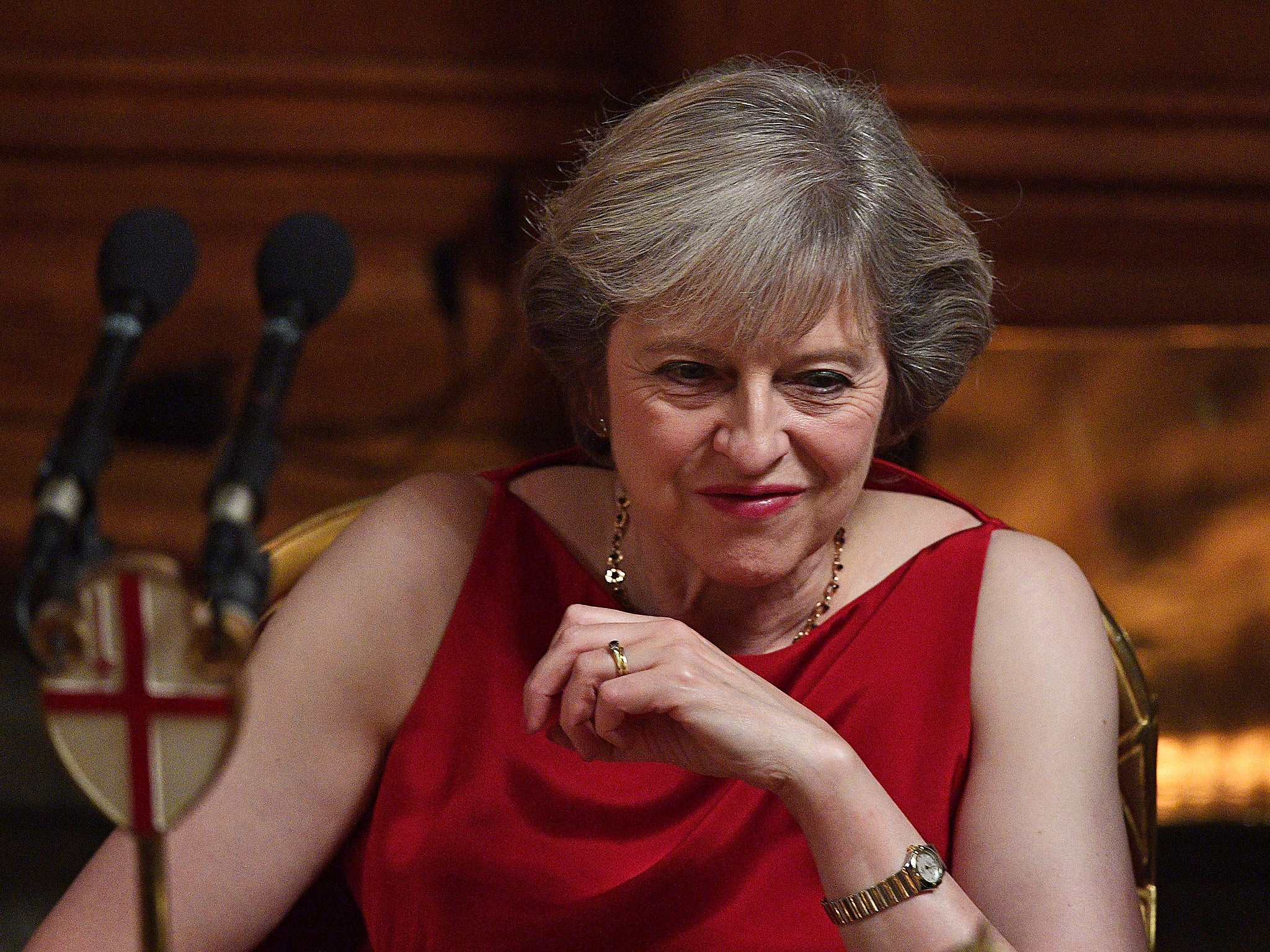Theresa May has been forced to show her hand over Brexit – not a moment too soon
The serious business of getting the best deal possible from Brexit can now get under way, with the benefit of greater public knowledge and parliamentary scrutiny. This is of great economic value

Your support helps us to tell the story
From reproductive rights to climate change to Big Tech, The Independent is on the ground when the story is developing. Whether it's investigating the financials of Elon Musk's pro-Trump PAC or producing our latest documentary, 'The A Word', which shines a light on the American women fighting for reproductive rights, we know how important it is to parse out the facts from the messaging.
At such a critical moment in US history, we need reporters on the ground. Your donation allows us to keep sending journalists to speak to both sides of the story.
The Independent is trusted by Americans across the entire political spectrum. And unlike many other quality news outlets, we choose not to lock Americans out of our reporting and analysis with paywalls. We believe quality journalism should be available to everyone, paid for by those who can afford it.
Your support makes all the difference.Faced with a humiliating parliamentary defeat, powered by one of the largest Tory backbench rebellions in years, the Government has, very reluctantly, agreed to Labour’s demand that the “Brexit plan” be now published. Credit, then, to Jeremy Corbyn’s team, and those pesky Tories with minds of their own.
This is a great relief for those who assumed – supported by overwhelming evidence – that there was no such thing as a “Brexit plan” and that ministers were making it up as they went along. Now, it seems, there was masterplan all the time.
The details we have yet to see, so disappointment may still await. Nonetheless, the serious business of getting the best deal possible from the bad starting point of Brexit can now get under way with the benefit of greater public knowledge and parliamentary scrutiny. This is, in itself, of great economic value.
It is a truism, made no less true by constant parroting, that business yearns for certainty – which is to say that companies are unwilling to invest in people, new kit or marketing campaigns, or in building houses, factories and offices, if they have no idea what their return from that investment is likely to be.
About the only business that has been given anything like that certainty would appear to be Nissan UK, whose bosses have been assured that the Government will look after them, come what may. Very good news for them, but the rest of the motor manufacturers, and British industry and commerce in general, might appreciate the same kind of courtesy.
More transparency about Brexit, even if it reveals some half-baked notions, is better for investment, job creation and trade than no knowledge at all when the worst is the safest assumption to make.
Falling investment – of which there are already some signs, such as surveys of business confidence – depresses the economy in the short term, threatening to spiral into a self-reinforcing decline in output; and it is also deeply damaging to the long-term prospects of boosting productivity, and thus wages and living standards. These truths bear repeating.
It is often stated, too, that revealing the “plan”, if such it is, would damage the UK's negotiating position. But why? We are not engaged in a game of poker. There is no great harm in our European counterparts knowing what we wish for, because they will shortly be told in any case.
When they are, we may safely assume that the details of the British negotiating stance will be rapidly leaked. Then the British people, and their MPs, will learn of their Government’s activities via the Frankfurter Allgemeine Zeitung or the Corriere della Sera rather than their own secretaries of state. Realisation of this truth may also have pushed the Government towards a more conciliatory, and realistic, approach to parliamentary criticism.
We also know – and are constantly reminded – that the European position is clear. The EU’s chief negotiator, Michel Barnier, has repeated that the UK will not be able to pick and choose the elements of EU membership it would like to retain, such as access to the single market, while being free to reject the ones it does not, such as the free movement of labour. He adds that while a “transitional agreement” is possible, a full deal will have to be negotiated by October 2018.
Mr Barnier, then, is free to outline the EU’s negotiating attitude, even as Theresa May is set on a futile attempt to maintain radio silence over her own. “Brexit Means Brexit” was an oxymoronic slogan for any prime minister; far better that she starts to talk turkey.
In a grim year, some truth about Brexit is perhaps the best Christmas present 10 Downing Street could deliver to an anxious nation. The British people deserve to know what they are heading towards, and they deserve the opportunity to approve the terms of exit when they eventually are agreed – either in Parliament or in a further national vote.
Join our commenting forum
Join thought-provoking conversations, follow other Independent readers and see their replies
Comments